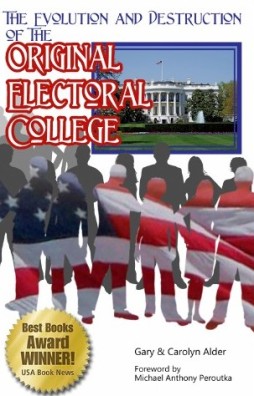The Formula for Freedom is found in the structure of the United States Constitution
Limited, delegated powers. (Enumeration)
Vertical distribution of powers. (Federalism)
Horizontal separation of powers. (Separation)
Checks. (Bridle usurpation)
Balances. (Representation of all interests)
Secured rights. (Individual sovereignty)
Key 11 Analysis
To establish Justice, Order, and Defense are the legitimate functions of the government. These were stated in the preamble to the Constitution as to why the States were forming a “more perfect union.”
We the people of the United States, in Order to form a more perfect Union, establish Justice, insure domestic Tranquility, provide for the common defence, promote the general Welfare, and secure the Blessings of Liberty to ourselves and our Posterity, do ordain and establish this Constitution for the United States of America.
The beauty of the Constitution is that it divided up the powers and the prerogatives among several branches and the states to protect individual rights. Therefore, the government, or the political realm, has only limited, delegated authority.
The genius of creating the necessary controls over the national government and each of its branches lies in the strategy of choosing those who serve by different methods, for different terms of office, representing different interests, and delegating to each different responsibilities. This strategy checks the usurpation of power by allowing each legitimate and constitutionally authorized branch to protect its power from the other branches.
Quotes
The enumeration in the Constitution, of certain rights, shall not be construed to deny or disparage others retained by the people. Amendment IX
* * *
Congress has not unlimited powers to provide for the general welfare, but only those specifically enumerated. Thomas Jefferson
* * *
The powers not delegated to the United States by the Constitution, nor prohibited by it to the States, are reserved to the states respectively, or to the people. Amendment X
* * *
The powers delegated by the proposed Constitution to the federal government, are few and defined. Those which are to remain in the State governments are numerous and indefinite. The former will be exercised principally on external objects, as war, peace, negotiation, and foreign commerce; with which last the power of taxation will, for the most part, be connected. The powers reserved to the several States will extend to all the objects which, in the ordinary course of affairs, concern the lives, liberties, and properties of the people, and the internal order, improvement, and prosperity of the State. James Madison Federalist 45 Jan. 26, 1788
* * *
There are more instances of the abridgement of the freedom of the people by the gradual and silent encroachment of those in power, than by violent and sudden usurpation. James Madison
* * *
In questions of power, then, let no more be heard of confidence in man, but bind him down from mischief by the chains of the Constitution Thomas Jefferson (Checks – bridle usurpation))
* * *
The great object of my fear is the federal judiciary. That body, like gravity, ever acting, with noiseless foot, and unalarming advance, gaining ground step by step, and holding what it gains, is engulfing insidiously the special governments into the jaws of that which feeds them. Thomas Jefferson, letter to Judge Spencer Roane, Mar 9, 1821
* * *
The power under the Constitution will always be in the people. It is entrusted for certain defined purposes, for a certain limited period, to representatives of their own choosing; and whenever it is executed contrary to their interest, or not agreeable to their wishes, their servants can, and undoubtedly will, be recalled. George Washington 1787
* * *
The history of almost all the great councils and consultations held among mankind for reconciling their discordant opinions, assuaging [alleviating] their mutual jealousies, and adjusting their respective interests, is a history of factions, contentions, and disappointments, and may be classed among the most dark and degraded pictures which display the infirmities and depravities of the human character. If, in a few scattered instances, a brighter aspect is presented, they serve only as exceptions to admonish us of the general truth; and by their lustre to darken the gloom of the adverse prospect to which they are contrasted. In revolving [examining] the causes from which these exceptions result, and applying them to the particular instances before us, we are necessarily led to two important conclusions. The first is, that the convention must have enjoyed, in a very singular degree, an exemption from the pestilential influence of party animosities the disease most incident to deliberative bodies, and most apt to contaminate their proceedings. The second conclusion is that all the deputations [delegations] composing the convention were satisfactorily accommodated by the final act, or were induced to accede to it by a deep conviction of the necessity of sacrificing private opinions and partial interests to the public good, and by a despair of seeing this necessity diminished by delays or by new experiments. James Madison Federalist 37 Jan 11, 1788
* * *
The most important purpose of the United States Constitution is to confine, limit, restrict and control the powers of the Federal Government. David W. New (Attorney at Law in the D.C. area.)
* * *


